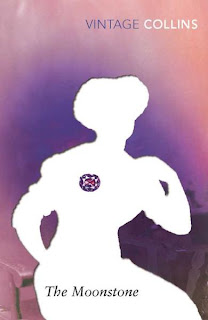The novel follows a friend of Dr. Jekyll's as he converses with a mutual friend. On a walk one day they pass a strange house that they rarely ever see anyone go into. The narrator's companion tells a horrible tale of a man who stumbles over a child and doesn't even care. This heartless tale that affects both of them deeply turns out to be a story that is much closer to home for them.
The premise is that Dr. Jekyll doesn't like the fact that he has a conscience and would like to separate out the two pieces of his personality so that he would be either all good, or all bad. As he experiments with this, being a chemist, he happens upon a chemical that does just that. The only trouble is that it separates out the bad part leaving the other half with a conscience and knowledge of the wrong doing. In time, the chemical requires a stronger dose to maintain, and there comes a point where Dr. Jekyll get's trapped in Mr. Hyde. Rather than face life as horrible person knowing the wrongs he is likely to commit, he kills himself. The story is finally revealed through a series of letters that he leaves for his various friends.
The story, is engaging, and interesting. It is a true Gothic novel with a dark theme and even darker descriptions. It has elements of mystery to it as well, although the story is so well known, now that modern readers will lose a little of this facet of the story. What surprised me the most was that it also had a moral: the fact that human nature leaves us trapped with both a good and bad side to each of us. Try as we may, there is no way to separate the fact that as humans we are both good and bad. "all human beings, as we meet them, are commingled out of good and evil". One of the deepest statements in the novel about the nature of good and evil is this: "...two natures that contended in the field of my consciousness, even if I could rightly be said to be either, it was only because I was radically both". No matter whether someone is described as good or evil, a nice person, or a bad person; we are all a mixture of both. It is only a matter of perspective as to what the world sees. I like this theme, dark as it is, because it is one of the basic tenets of my belief system. I have a magnet on my fridge that says "we are all junkies and prostitutes". I get a lot of comments on the magnet as people question what it means and why I like it. The reason is this: we all have our weaknesses that make us chase after certain things and we all have something for which we would sell ourselves. In our basest nature there is very little difference between the homeless man on the side walk with his addiction and the Wall Street CEO with his obsession with money. What separates the two, is merely the degree of social acceptability of their foibles. I try really hard never to judge anyone because I haven't had to live in their shoes. With the work I do in homeless outreach and youth outreach there are often very traumatic stories hovering just below the surface. I can't say that I would end up any different if I had to live their life. We are all valuable human beings, no matter what we have done. This is one of the deepest parts of my faith and a part I have held very dearly. As a teen, to express this to the world, I took the idea to the extreme and created a fake company called "Serial Killers go to Heaven, too: A branch of the Charles Manson Christian Fan club"! As horrible as it sounds it was a tongue-in-cheek way of saying that I believe I was no better than the worst human being on earth.
I like that this book gets across the idea of human nature in an interesting and engaging way. It had me thinking through deep philosophical questions while being thoroughly entertained. That is a sign of good fiction.



